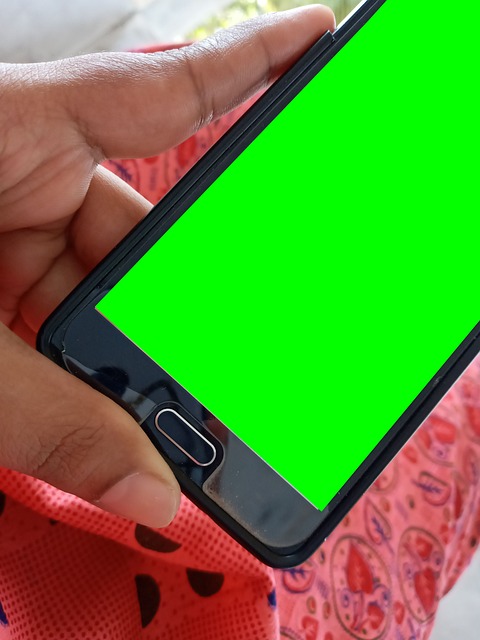In West Virginia, residents are protected from spam texts (unwanted promotional SMS) through strict anti-spam laws. If you face relentless spam messages, consulting a specialized spam texts lawyer in West Virginia is advisable. These professionals can guide you on your rights, block messages, file complaints, and take legal action against perpetrators. Documenting each message's details is crucial for effective protection.
“West Virginia residents now have legal recourse against relentless spam texts thanks to the state’s stringent anti-spam laws. With the rise of digital communication, understanding your rights against unsolicited text messages is crucial. This comprehensive guide explores the legal framework surrounding spam texts in West Virginia, empowering residents to protect themselves and know when to involve a lawyer. From identifying spam to taking action, discover effective strategies to prevent and respond to unwanted text spams.”
Understanding Spam Texts and Their Legal Implications in West Virginia

In the digital age, spam texts have become a ubiquitous and often unwanted part of daily life. These unsolicited text messages, typically advertising products or services, can be frustrating for recipients and may even carry legal implications. In West Virginia, recognizing this growing concern, laws have been established to protect residents from excessive and unwanted spam texts.
The legal framework in West Virginia defines spam texts as unsolicited commercial text messages sent to mobile numbers without prior consent. Such actions are considered a violation of consumer rights, and affected individuals can take legal action against the perpetrators. Engaging the services of spam texts lawyers in West Virginia is a common step for those who have received unwanted marketing messages, as it allows them to understand their rights and seek appropriate remedies under the law.
The Legal Framework: West Virginia's Anti-Spam Laws

West Virginia has established a legal framework to protect residents from unwanted text messages, commonly known as spam texts. The state’s anti-spam laws are designed to prevent businesses and individuals from sending unsolicited text messages, providing consumers with a measure of control over their communication preferences. These regulations are essential in addressing the growing concern of excessive and unwanted marketing through mobile channels.
Under West Virginia law, it is illegal for anyone to send a text message without the prior explicit consent of the recipient. This means that businesses must obtain permission before texting promotional content or face potential legal repercussions. There are strict penalties for violations, including fines and orders to cease and desist. Consumers who feel their rights have been infringed upon can seek legal advice from West Virginia lawyers specializing in telecommunications law to understand their options and hold perpetrators accountable.
Unwanted Text Messages: Rights of West Virginia Residents

In West Virginia, residents have the right to be free from unwanted text messages, commonly known as spam texts. According to state laws, it is illegal for anyone to send a text message using an automated dialing system or prerecorded voice to a telephone number listed on the National Do Not Call Registry or any number where the recipient has made clear their desire not to receive such messages. These rights are protected by legislation aimed at preserving consumer privacy and preventing harassment from relentless spam texts.
If you’re facing a barrage of unwanted text messages, knowing your rights is crucial. Consulting with experienced lawyers in West Virginia specializing in telecommunications law can help you understand your options for legal recourse. They can guide you through the process of blocking these messages and seeking compensation for any inconvenience or distress caused by persistent spam texts.
When to Involve a Lawyer for Spam Texts

If you’re receiving unwanted text messages, especially those considered spam, it’s important to know your rights and options under West Virginia law. While some spam texts might be harmless marketing attempts, others could be harassing or fraudulent. Involving a lawyer can be beneficial in several scenarios. For instance, if the messages persist despite your requests to stop, or if they include misleading or false information, legal counsel can guide you on how to proceed.
A lawyer specializing in this area will help navigate the state’s anti-spam laws and ensure your rights are protected. They can send cease-and-desist letters, file formal complaints, or even represent you in court if necessary. In West Virginia, consumers have certain protections against unwanted marketing texts, and a legal professional can assist in enforcing these rights, especially when dealing with persistent or aggressive spammers.
Protecting Yourself: Preventing and Responding to Unwanted Text Spams

If you’re receiving unwanted text messages in West Virginia, know that state laws are in place to protect you from spam texts. The first step is to identify and document the source of the messages. Keep a log of each text, including dates, times, and content. This information can be invaluable if you need to take legal action later.
Consulting with lawyers specializing in telecom law or consumer protection in West Virginia can help you understand your rights and options. They can guide you through the process of sending cease and desist letters, filing complaints with regulatory bodies, or even pursuing legal action against the spammers. Remember, protecting yourself from spam texts is an active process that requires quick action and robust documentation.






